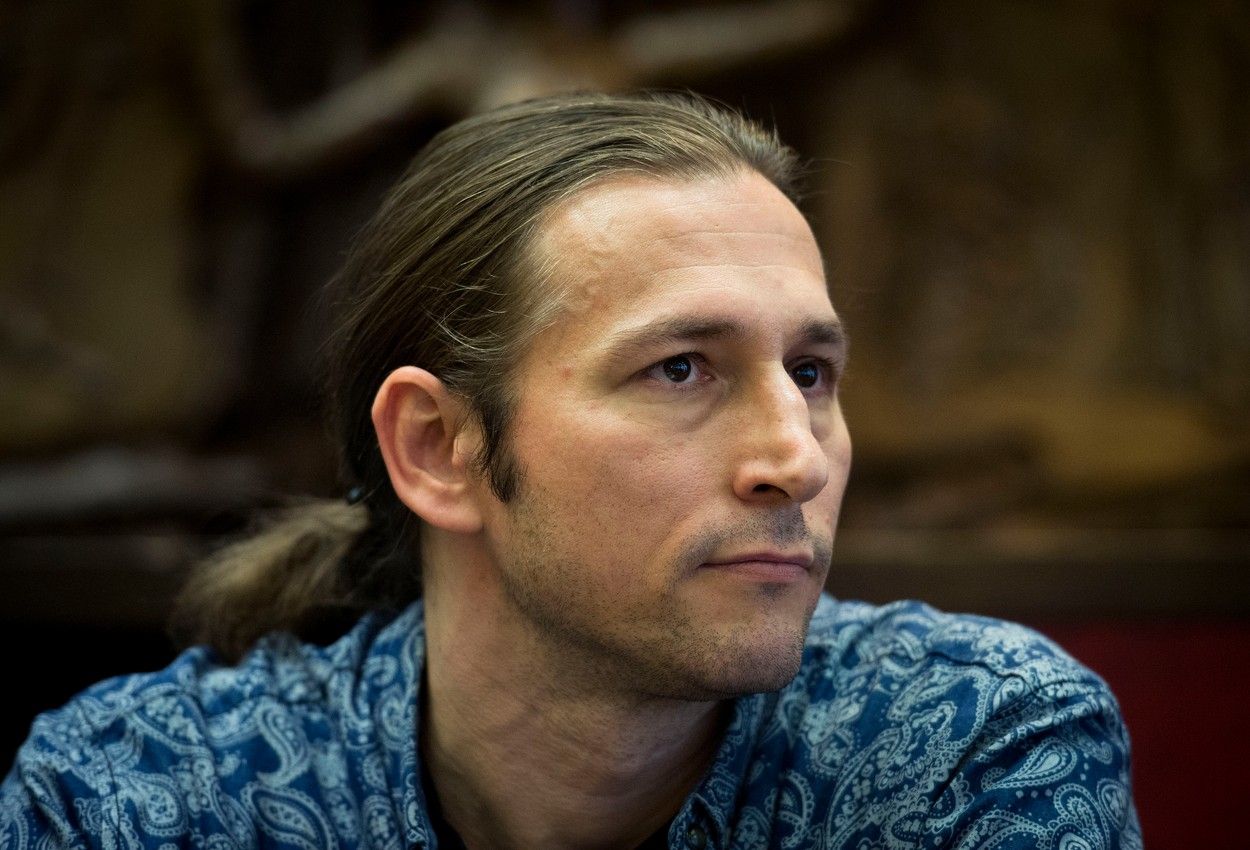At three concerts from this Thursday, January 19 to Saturday, January 21, the Czech Philharmonic will perform the world premiere of a double concerto for two trombones entitled Bimetal, written for him by Miloš Orson Štědroň, at Rudolfinum Prague.
Three Slavic Rhapsodies and the Ballad of Blanicka by Leoš Janáček will also be performed. The orchestra will be conducted by chief guest conductor Tomáš Netopil.
The composition Bimetal was created at the instigation of the first Czech orchestra, which commissioned contemporary works from renowned Czech and foreign composers as part of a multi-year project. The soloists of the double concerto for two trombones were members of the old ensemble Lukáš Moťka and Robert Kozánek.
“The name Bimetal is a diminutive play on words, apart from the instrumentation of two trombones, it also naturally expresses well-known physical phenomena,” recalls composer Miloš Orson Štědroň, that bimetal, or bimetal, is a band made of two metals by different thermal expansion. different.
“I wanted to transfer this principle of action and reaction to the world of music and use the enormous instrumental possibilities of the two trombones through the double concert form, which offers duels and harmony. The orchestra is a very important partner, because it depends on how it will ‘switch’ between the two trombones,” added Štědroň, saying that in this metaphor the ensemble functions as an imaginary thermostat between the two metal trombones.
According to a spokesman for the Czech Philharmonic, Bimetal is a virtuoso and entertaining double concert which aims to appeal to the general public. Due to its unconventional construction, unexpected contrast and concise message, it has the best prerequisites for this.
“The first movement uses variations on quasi-folkloric themes after a fast breezy introduction, while the ending is again breezy with rhythmic gradations. The second movement then contrasts sharply, with the slowly lyrical imitative theme moving into a fugue with a final and effective ending point, ” he concludes forty-nine-year-old Štědroň, who is known to the public as the author of the productions of the Beautiful Typewriter from the Na zábradlí Theater in Prague or the opera Don Hrabal, staged by the National Theater in 2017.
The Czech Philharmonic was supposed to perform Bimetal a year before last March, but had to postpone the show due to the coronavirus pandemic.
His concerts planned for this week will start with Ballad blanická by Leoš Janáček, inspired by verses from the collection Peasant Ballads by Jaroslav Vrchlický. “The blanická ballad is for me a work whose essence and statements express Janáček’s inner lyrics and poetry,” explains conductor Tomáš Netopil. “Above the dynamic brevity and characteristic small fragments, rich lines connect the whole composition. I am always surprised by the instrumental discovery of Leoš Janáček, who here uses a very wide color orchestral scale,” he adds.
The Czech Philharmonic last performed the Ballade blanická in 2010 at London’s Royal Albert Hall under the baton of John Eliot Gardiner.
The last composition on the program, Slavonic Rhapsody, was written by Antonín Dvořák in 1878. The first two premiered the same year in Žofín Prague, where the Provisional Theater orchestra played under the composer’s baton. The third part was first performed in 1879 in the hall of the Royal Court Opera in Berlin. In Prague, Dvořák conducted the Third Rhapsody several times, together with his other works also at the Rudolfinum on 4 January 1896, at the Czech Philharmonic’s first concert.
I don’t try to grimace in front of the mirror anymore. A conductor must be a psychologist, says Hrůša
What cannot be communicated with words can be communicated with music, world-renowned conductor Jakub Hrůša told DVtv last year. | Video: Michael Rozsypal

“Certified bacon geek. Evil social media fanatic. Music practitioner. Communicator.”







